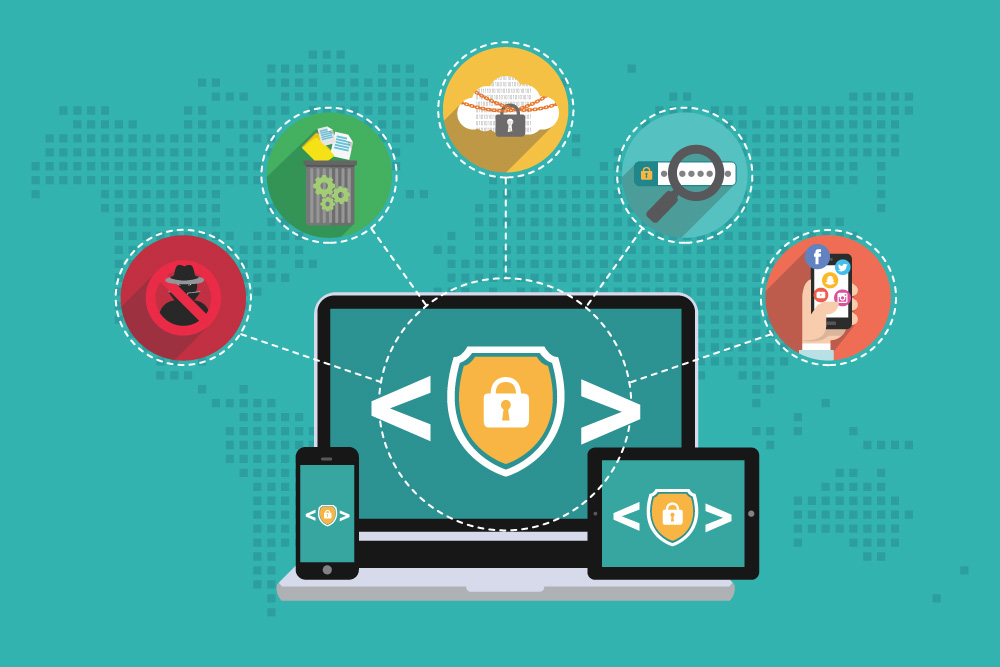
How To Secure Personal Information On The Web
The concept of personal information is very broad. But let us just focus on one side of it that it can be used on its own or with other information to identify, contact, or locate a single person, or even identify a certain individual by just reading its context. One’s personal information should be secured properly to avoid leaks in your privacy. In most cases, a leak in your privacy means the end of the world-type kind of situation. When that happens, it is likely that you can’t retrieve your stolen information from the criminals that cyber-attacked you.
When it comes to securing your personal information, it isn’t that broad. Everybody wants to protect and secure their personal information from any bad elements or anyone who wants to use and exploit it against them. It’s that simple but still, there is always that one annoyance who just wants to destroy someone or something out of revenge or just for plain fun. That is why it is very important for one to practice good personal information security, especially on websites where malware, phishing, and other cyber-attacks are always present. For that, has got you covered already with simple but very important tips that will really help you not only for today but also in the long run.
Here are those simple but very important tips in securing your personal information on websites:
Be Alert towards Impersonators
The first thing to have in your mind is to make sure that you know the person to who you have given your personal information. Giving personal information on the internet using social media websites or through the mail is fine unless you know who you are talking to and you are the one to initiate the conversation. When using emails, chances are high that you will receive emails that have malicious content that will suck your personal information out of you with yourself knowing nothing about it. If you happen to receive an email that says someone or a company claiming to have an account with you sending and asking for your personal information, do not give in to it. Instead, search the company name on the internet and verify if it’s legit. If the email contains a link, do not click it immediately. It may be a suspicious website that cybercriminals use in phishing or a website that automatically downloads malware into your computer or device.
Safety Disposal of Personal Information
Before disposing of a computer, clear all the personal information that is stored or saved in your web browsers. You can use a wipe utility program to overwrite the entire hard drive of your computer. If you are surfing using a mobile device, just press factory data reset in the setting of your device to get rid of the personal information you have on the device. You can also reset the web browsers and wipe out all personal data that is saved like usernames, emails, passwords of accounts.
Data Encryption
Keep your browser secure all the time because this is where almost all phishing activities happen. Using software that encrypts and scrambles information you send over the internet helps you, big time. Always notice the green “lock” icon in the status bar of your browser which means the information you send is safe during transmission. It also means the website you’re on is safe and secured.
Keep Your Password Private
This is one of the basic data and personal information protection you can do. You should use strong passwords and be creative in creating them for example: “I want to see the Pacific Ocean” could be like this 1W2CtPo. Also, using the same passwords for all your accounts is not advisable. Once a cyber-attacker knows just one of your passwords, that will be used to their advantage and it makes it easy for them to hack all your accounts.
Avoid Oversharing on Social Networking Sites
If you post too much on Facebook, Instagram, Twitter, and other social networking sites, an identity thief can find information about your life and they can and will be able to use it to answer challenge questions on your accounts to access your personal information as well as your money. Remember never to post your Social Security Number, address, phone number, or account numbers on publicly accessible sites.
Recent Posts
- How Does GPON Improve Network Efficiency?
- What Are The Advantages Of GPON?
- What Are The Benefits Of IT Outsourcing?
- What's The Deal With Ransomware Attacks?
- Are GPON Providers Widely Available?
- What's GPON's Impact On Bandwidth?
- Why Is Multi-Factor Authentication Important?
- How To Ensure Data Privacy Compliance?
 Blogs
Blogs Infographics
Infographics Videos
Videos Podcasts
Podcasts Case Studies
Case Studies Call For Quote
Call For Quote